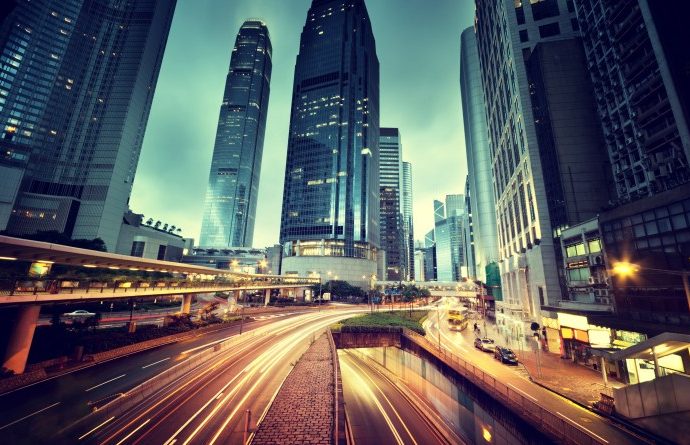By the year 2050, according to the UN, more than two-thirds of the world’s population will live in urban areas, up from just 30 percent in 1950. In North America, including the United States, the urban share of the population is already a staggering 82 percent, and worldwide roughly 4.2 billion people are now city-dwellers.
By any measure, therefore, urbanization is among the mega-trends of the times. Among other things, that means the battle for stronger environmental protection will be won or lost in the big city.
That, in a nutshell, is the intuition behind a book presented on Wednesday at the headquarters of Vatican Radio titled Laudato Si’ and Big Cities, which is edited by Cardinal Lluís Martínez Sistach, the former archbishop of Barcelona in Spain.
Laudato Si’, of course, is Pope Francis’s 2015 encyclical letter on the environment, the first a pope ever completely dedicated to the subject. The new book, issued by the Vatican’s publishing house, collects papers presented at a July 2017 conference on the encyclical’s relevance for urban areas in Rio de Janeiro, Brazil.
That conference, and the book which resulted from it, focused on three major environmental challenges especially associated with urbanization: Drinkable water, air quality and a “constant increase” in trash.
Judging by two prelates and close allies of Francis who presented the book in Rome on Wednesday at an event at the headquarters of the Vatican’s Dicastery for Communications, the pope’s team has no intention of backing away from its strong environmental advocacy.
Among other things, both Sistach and Argentine Bishop Marcelo Sánchez Sorondo, Chancellor of the Pontifical Academy of Sciences and the Pontifical Academy of Social Sciences, insisted that climate change is real and needs to be resisted.
“Climate change is a real problem, and it’s everyone’s problem,” Sistach said. “We can’t resolve it by pretending not to see it, because the planet is already fairly mistreated.”
Sistach called for strong measures to protect what he called “our poor, suffering planet,” in particular “progressive measures to diminish emissions” of the gases believed to cause global warming.
Citing Francis in Laudato’ si, Sistach complained of widespread “indifference to our common home, with so many tragic needs that afflict our brothers and sisters,” as well as a “loss of a sense of responsibility that’s the foundation of every civil society.”
“We have to change styles of life, rhythms of consumption and cultures of waste,” Sistach said.
Sanchez Sorondo echoed the point.
“I agree with what’s been said, we can’t ignore climate change,” he said. “It’s useless to deny it, or to pretend not to see it.”
In terms of a specific Catholic contribution to the press against climate change, Sanchez Sorondo pointed to the Church’s academic institutions.
“Our schools don’t talk about these contemporary themes, including the climate,” he said, adding that the problem is complicated by the fact that relatively few Catholic universities have full science faculties.
“Ironically, this theme [of the pope’s encyclical] drew more interest in secular venues than in Catholic universities,” he said, calling on Church-sponsored universities to create their own institutes of climate science.
Both prelates also agreed that the drive to protect the environment opens up the possibility of collaboration with other Christians and the followers of other religions.
“It’s an important ecumenical and interreligious meeting point,” Sistach said, echoing the pope’s call for “the great religions to work together to find solutions to these great problems.”
The 81-year old Sistach described an ecumenical and inter-faith panel held at the Rio de Janeiro conference.
“I have to say, it wasn’t easy to organize that panel, because there are some religions that have a more developed sense of responsibility for creation and others less,” he said. He explained that while there were representatives of Catholicism, the Reformed churches, Islam and Judaism in Rio, there was no one from Orthodox Christianity.
“Maybe it was just because there wasn’t enough time, but we didn’t find anyone,” he said. “Not everyone has studied this.”
Sistach acknowledged, however, the leadership on the ecological front shown by Orthodox Patriarch Bartholomew of Constantinople.
“It’s very important that these meetings on Laudato si’, which regard all of humanity, be ecumenical,” Sanchez Sorondo said.
As an illustration of the inter-faith potential, the book contains the text of a discussion in Rio among Brazilian Cardinal Orani João Tempesta and two of Francis’s close friends of other faiths: Rabbi Abraham Skorka and Islamic leader Omar Ahmed, both from Argentina.
The volume also contains a message sent by Francis to the 2017 conference, in which the pontiff said today’s challenges in urban areas need to be met with three qualities: respect, responsibility and relationship.
“It is important for society to work together in a political, educational and religious context to create warmer human relationships, to break the walls that isolate and marginalize,” he wrote.

